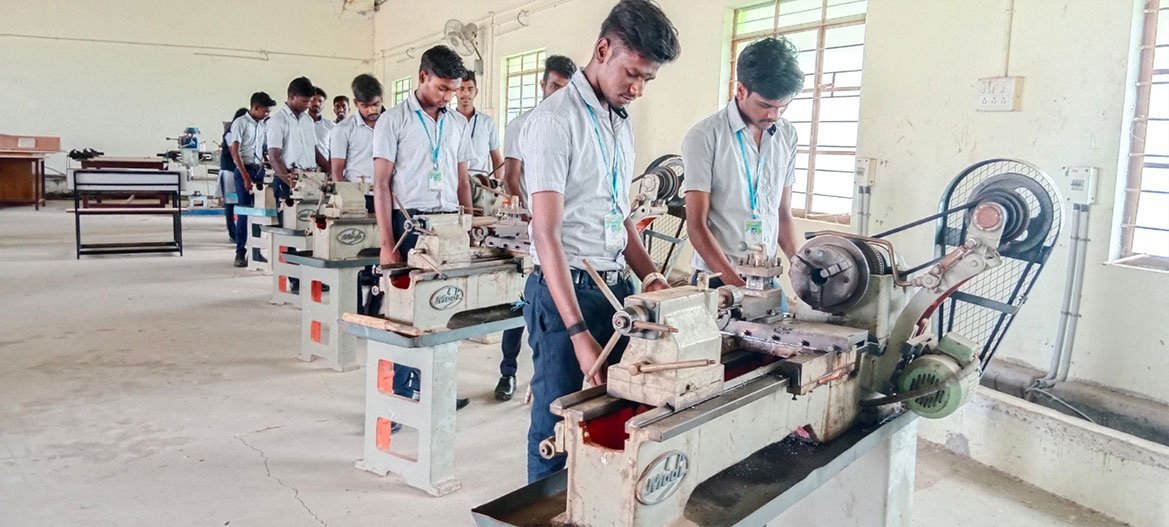
Course Details:
Engineering Mathematics:
Basic mathematical principles applied to engineering problem-solving.
Engineering Physics:
Fundamentals of physics with a focus on mechanical applications.
Engineering Chemistry:
Introduction to chemistry principles relevant to mechanical engineering.
Engineering Graphics:
Basics of engineering drawing, including projections and dimensioning.
Computer-Aided Engineering Drawing:
Introduction to computer-aided design (CAD) tools for engineering drawings.
Mechanics of Solids:
Study of forces, stresses, and strains in solid materials.
Thermodynamics:
Basic principles of thermodynamics, heat transfer, and applications.
Fluid Mechanics:
Study of fluid properties, fluid statics, and fluid dynamics.
Manufacturing Technology:
Introduction to various manufacturing processes such as casting, machining, and forming.
Machine Drawing:
Advanced engineering drawing focusing on machine components and assemblies.
Mechanical Measurements and Metrology:
Techniques for measuring mechanical quantities and ensuring precision.
Theory of Machines:
Study of mechanisms and machine components, including kinematics and dynamics.
Machine Tools and Operations:
Understanding different machine tools and their operations in manufacturing.
Heat Power Engineering:
Advanced study of thermodynamics as applied to heat engines.
Industrial Training:
Practical training in an industrial setting to gain real-world experience.
Project Work:
Undertaking a project to apply learned concepts and develop problem-solving skills.
Career Opportunities:
Mechanical Engineer:
Designing, analyzing, and manufacturing mechanical systems and components.
Maintenance Engineer:
Ensuring the proper functioning and maintenance of mechanical systems.
Quality Control Inspector:
Checking and ensuring the quality of manufactured products.
CAD/CAM Engineer:
Using computer-aided design and manufacturing tools for product development.
Production Supervisor:
Overseeing the manufacturing process and managing production teams.
Automobile Technician:
Working on the maintenance and repair of automotive systems.
HVAC Technician:
Installing and maintaining heating, ventilation, and air conditioning systems.
Tool and Die Maker:
Designing and fabricating tools and dies for manufacturing processes.
Research and Development Engineer:
Contributing to the development of new products and technologies.
Project Manager:
Overseeing and managing engineering projects from conception to completion.
Entrepreneur:
Starting a business in manufacturing or providing engineering services.
Technical Writer:
Creating technical documentation and manuals for engineering products.
Sales Engineer:
Combining technical knowledge with sales skills to sell engineering products.
Energy Auditor:
Assessing energy consumption and proposing efficiency improvements.
Consultant:
Providing specialized advice on mechanical engineering projects.
A Diploma in Mechanical Engineering opens doors to a variety of career paths in industries such as manufacturing, automotive, aerospace, energy, and more. The hands-on skills and theoretical knowledge gained during the diploma program equip individuals to contribute to the design, production, and maintenance of mechanical systems and components.